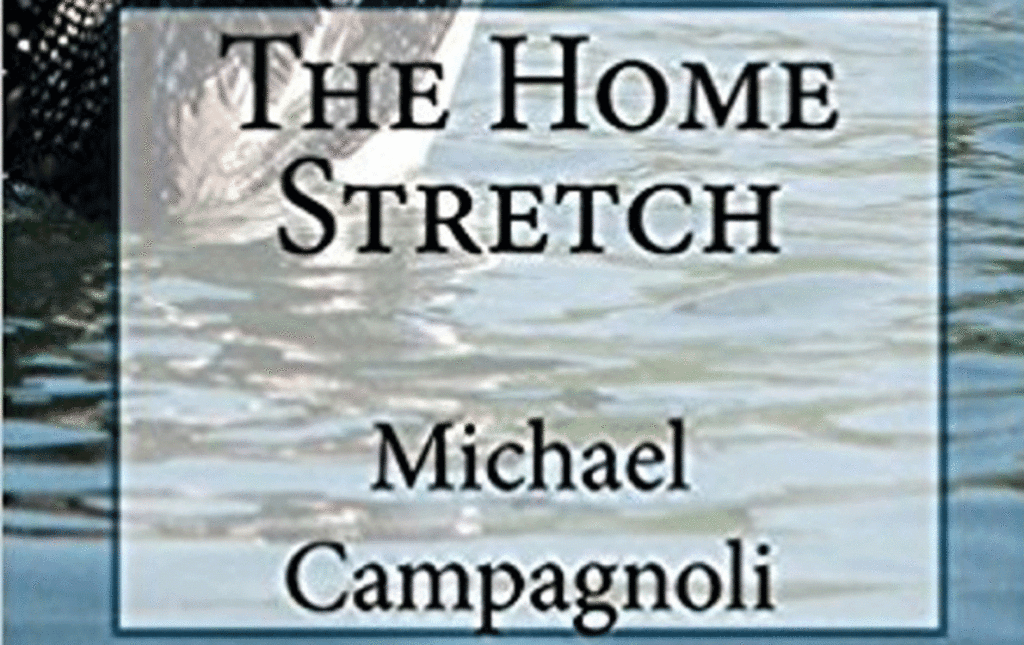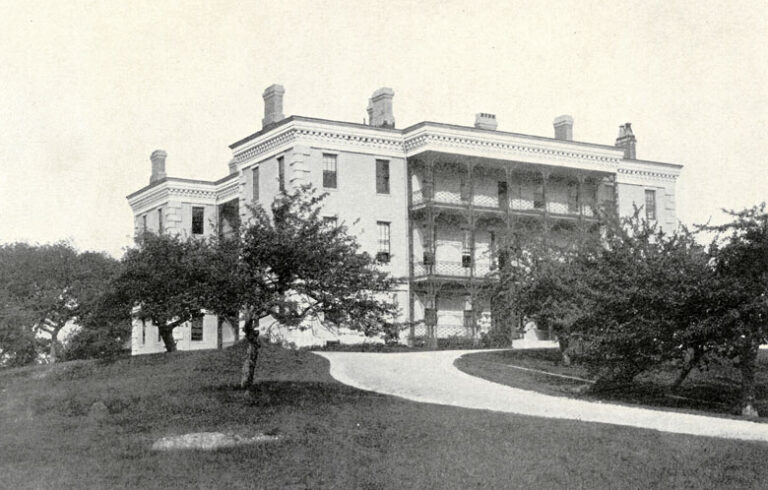Early in Michael Campagnoli’s The Home Stretch: a cycle of poems, a poem titled “If We’re Not A Dream We’re Nothing” sketches, in 13 short lines, the bleakness and bareness of a November apple orchard, where the migrant pickers have come and gone and all that’s left is “empty trees … / lonely in the/vacant light.”
It’s a really haunting, echoing evocation of November, squarely in the uncertain vicinity of Nathaniel Hawthorne’s moonlit room where objects solid in the daylight, at night “seem to lose their actual substance, and become things of the intellect … somewhere between the real world and fairy-land.”
Somewhere between the waking world and her dreams is where we see Campagnoli’s character Anna, who is an early morning jogger somewhere in the vicinity of Rockland, Campagnoli’s hometown. It is a supernaturally beautiful place where loon shrieks arise from nowhere and settle back, a fox with a rabbit in its teeth flickers in and out of car headlights, apple pickers appear and disappear with the season, a stranger in “shabby overcoat,/a frayed blue watch-cap on his head” shambles like an apparition outside the house, and a car accelerates down a hair-raising pitch and comes to rest in “the calm relief of open fields/the long-blue gouda-whiteness/of the river-freezing moon.”
Wait, are these dreams or real events?
It’s hard to tell, because the poems themselves arise and subside like the disconnected flickers in a long, connected dream. And the tone of the dream is lurking fear, the kind of anxious sense of threat that might be nocturnal paranoia or might be a response to impending danger, it’s hard to tell which until it happens.
The face of the shambling, disheveled man with the watch-cap eventually appears right outside the window of Anna’s house: “This way evil comes.” In turn, she begins to fear the house itself when her husband’s not around for comfort.
In another piece of the dream—or the threat—she spots during her morning run the rat-faced man: “Watch-cap on his head/His right arm pumped/Unmistakable/And grotesque/Soundless/In the morning light.”
At the center of the cycle, the poem “Mirror Image (after Millay)” discloses memories of a beloved twin sister who, the poem suggests, was raped and murdered one November day.
and now,
she
left alone
wanders
these cold and vacant rooms,
twinless,
and wonders where
up?
down?
“She comes no more.” At this point we are deep inside Anna’s psyche, and true to psychic life, it’s not clear where the real events and memories of real events leave off and the dream and daydream events begin. Her fear disrupts her marriage. She remembers her beloved father, also vanished. Some voice of unseen origin calls her name during another early morning run, and she sails for it.
This little book is lyric gothic on the Midcoast. It makes nearly direct contact with the moonlit no-man’s-land between the everyday waking world and the events of the inner psyche, with almost certain Jungian ramifications. And not to put too fine a point on it, but this is exactly what the best poetry does: It leads you to the places that moonlight, as Hawthorne put it, has “invested with a quality of strangeness and remoteness … [where] our familiar room has become a neutral territory, somewhere between the real world and fairy-land, where the Actual and the Imaginary may meet, and each imbue itself with the nature of the other.”
And, I might add, throw that moonlight on the reality of who we are and how we occupy our surroundings. “Ghosts might enter here without affrighting us.”
This is a book you can read and re-read and never reach bottom.
Campagnoli’s facility for evocative language is extraordinary, really, and the dreamlit cycle of poems in The Home Stretchadds a new dimension to his other accomplishments, which include Ah-Meddy-Ga(2005), on American immigrants and outsiders, and Penobscot Voices: Kikukus(2009), on the Native American experience in Maine.
Campagnoli lives in Rockland, and has worked variously as a waiter, fisherman, journalist, painter, and short-order cook, in addition to studying for a doctoral degree in English and writing award-winning poetry.
The Home Stretchhas been nominated for the Paterson Poetry Prize and the Milt Kessler Award for poetry. It’s available through Unsolicited Press’s website: www.unsolicitedpress.com/store/p123/campagnoliand online book sellers.
Dana Wilde lives in Troy and writes the Backyard Naturalist column for the centralmaine.com newspapers and is a member of the National Book Critics Circle. His recent book is Summer to Fall: Notes and Numina in the Maine Woods, available from North Country Press: northcountrypress.com/summer-to-fall.





